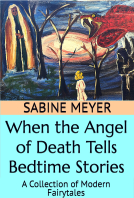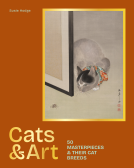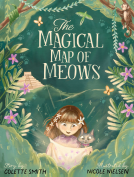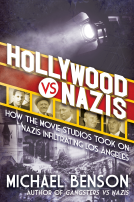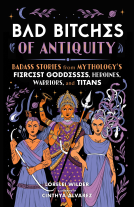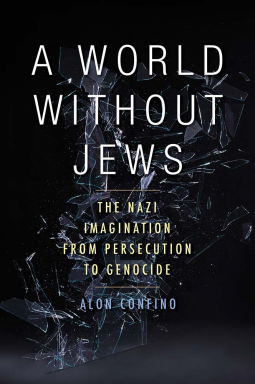
A World Without Jews
The Nazi Imagination from Persecution to Genocide
by Alon Confino
This title was previously available on NetGalley and is now archived.
Buy on Amazon
Buy on BN.com
Buy on Bookshop.org
*This page contains affiliate links, so we may earn a small commission when you make a purchase through links on our site at no additional cost to you.
Send NetGalley books directly to your Kindle or Kindle app
1
To read on a Kindle or Kindle app, please add kindle@netgalley.com as an approved email address to receive files in your Amazon account. Click here for step-by-step instructions.
2
Also find your Kindle email address within your Amazon account, and enter it here.
Pub Date Apr 15 2014 | Archive Date Jul 01 2014
Description
A groundbreaking reexamination of the Holocaust and of how Germans understood their genocidal project
Why exactly did the Nazis burn the Hebrew Bible everywhere in Germany on November 9, 1938? The perplexing event has not been adequately accounted for by historians in their large-scale assessments of how and why the Holocaust occurred. In this gripping new analysis, Alon Confino draws on an array of archives across three continents to propose a penetrating new assessment of one of the central moral problems of the twentieth century. To a surprising extent, Confino demonstrates, the mass murder of Jews during the war years was powerfully anticipated in the culture of the prewar years.
The author shifts his focus away from the debates over what the Germans did or did not know about the Holocaust and explores instead how Germans came to conceive of the idea of a Germany without Jews. He traces the stories the Nazis told themselves—where they came from and where they were heading—and how those stories led to the conclusion that Jews must be eradicated in order for the new Nazi civilization to arise. The creation of this new empire required that Jews and Judaism be erased from Christian history, and this was the inspiration—and justification—for Kristallnacht. As Germans imagined a future world without Jews, persecution and extermination became imaginable, and even justifiable.
Why exactly did the Nazis burn the Hebrew Bible everywhere in Germany on November 9, 1938? The perplexing event has not been adequately accounted for by historians in their large-scale assessments of how and why the Holocaust occurred. In this gripping new analysis, Alon Confino draws on an array of archives across three continents to propose a penetrating new assessment of one of the central moral problems of the twentieth century. To a surprising extent, Confino demonstrates, the mass murder of Jews during the war years was powerfully anticipated in the culture of the prewar years.
The author shifts his focus away from the debates over what the Germans did or did not know about the Holocaust and explores instead how Germans came to conceive of the idea of a Germany without Jews. He traces the stories the Nazis told themselves—where they came from and where they were heading—and how those stories led to the conclusion that Jews must be eradicated in order for the new Nazi civilization to arise. The creation of this new empire required that Jews and Judaism be erased from Christian history, and this was the inspiration—and justification—for Kristallnacht. As Germans imagined a future world without Jews, persecution and extermination became imaginable, and even justifiable.
A Note From the Publisher
Alon Confino is professor in the Department of History at the University of Virginia and at Ben Gurion University, Israel. A leading scholar of German memory and national culture, he is the author of three previous books. He lives in Charlottesville, VA.
Advance Praise
“Insightful [and] chilling . . . represents Nazism less as a ‘banality of evil’ and more as an ‘intimate brutality.’”—Kirkus Reviews
“In this sensitive intellectual history, Alon Confino maintains that the Nazis envisioned a world without Jews long before they found the means to kill them. This is a book about the Holocaust, but it is also something more: an attempt to make us see how what we call unthinkable was indeed a matter of thought.”—Timothy Snyder, author of Bloodlands
"In this pioneering exploration and explanation of Nazi antisemitic violence as a failed cultural revolution, Alon Confino's presentation is compelling, convincing, and long overdue. Uncovering new evidence and reexamining what has been known in an original way, A World Without Jews is an important history of culture as an agent of genocide."—Wendy Lower, author of Hitler’s Furies, National Bood Award Finalist
“A very original and persuasive account of the Holocaust. With style, imagination, and confidence, Confino has offered a telling critique of the reading of the Nazis as racial ideologues and shown how Nazi persecution was embedded in Christian imagery and memory.”—Mark Roseman, Indiana University
“With style, sensitivity and nuance, Alon Confino pushes the boundaries of Holocaust history. A World Without Jews will be widely read and keenly debated.”—Dan Stone, Royal Holloway, University of London
“In this refreshingly provocative re-reading of Nazi anti-Semitism, Alon Confino depicts a civilizational reordering of German origins and the making of a radically transgressive new European order. He sensitively analyzes how this counter-narrative was cruelly and fanatically implemented from 1933 on and illustrates it in almost unbearably graphic photographs.”—Steven E. Aschheim, author of At the Edges of Liberalism
“In this sensitive intellectual history, Alon Confino maintains that the Nazis envisioned a world without Jews long before they found the means to kill them. This is a book about the Holocaust, but it is also something more: an attempt to make us see how what we call unthinkable was indeed a matter of thought.”—Timothy Snyder, author of Bloodlands
"In this pioneering exploration and explanation of Nazi antisemitic violence as a failed cultural revolution, Alon Confino's presentation is compelling, convincing, and long overdue. Uncovering new evidence and reexamining what has been known in an original way, A World Without Jews is an important history of culture as an agent of genocide."—Wendy Lower, author of Hitler’s Furies, National Bood Award Finalist
“A very original and persuasive account of the Holocaust. With style, imagination, and confidence, Confino has offered a telling critique of the reading of the Nazis as racial ideologues and shown how Nazi persecution was embedded in Christian imagery and memory.”—Mark Roseman, Indiana University
“With style, sensitivity and nuance, Alon Confino pushes the boundaries of Holocaust history. A World Without Jews will be widely read and keenly debated.”—Dan Stone, Royal Holloway, University of London
“In this refreshingly provocative re-reading of Nazi anti-Semitism, Alon Confino depicts a civilizational reordering of German origins and the making of a radically transgressive new European order. He sensitively analyzes how this counter-narrative was cruelly and fanatically implemented from 1933 on and illustrates it in almost unbearably graphic photographs.”—Steven E. Aschheim, author of At the Edges of Liberalism
Marketing Plan
An excerpt from A World Without Jews:
A history of the Holocaust must include the history of emotions and imagination of Germans during the Third Reich, for the fundamental reason that the persecution and extermination was built on fantasy. In persecuting and exterminating the Jews, Germans waged a war against an imaginary enemy that had no belligerent intentions toward Germany and possessed no army, state, or government.
The essential motivations for this war were not practical, for Germans and Jews did not have a conflict over territory, land, resources, borders, or political power that often characterizes cases of ethnic cleansing and genocide in the modern world. In the mind of the Nazis, this was a war about identity. Nothing about Nazi anti-Semitism was driven by a desire to provide a truthful account of reality. Yet it was nonetheless believed by many Germans and therefore was for them real and truthful.
A key to understanding this world of anti-Semitic fantasies is no longer to account for what happened—the administrative process of extermination, the racial ideological indoctrination by the regime, and the brutalizing war—because we now have sufficiently good accounts of these historical realities. Rather, a key is to account for what the Nazis thought was happening, for how they imagined their world. What was this fantasy created by Nazis and other Germans during the Third Reich, and the story that went along with it, that made the persecution and extermination of the Jews justifiable, conceivable, and imaginable?
A history of the Holocaust must include the history of emotions and imagination of Germans during the Third Reich, for the fundamental reason that the persecution and extermination was built on fantasy. In persecuting and exterminating the Jews, Germans waged a war against an imaginary enemy that had no belligerent intentions toward Germany and possessed no army, state, or government.
The essential motivations for this war were not practical, for Germans and Jews did not have a conflict over territory, land, resources, borders, or political power that often characterizes cases of ethnic cleansing and genocide in the modern world. In the mind of the Nazis, this was a war about identity. Nothing about Nazi anti-Semitism was driven by a desire to provide a truthful account of reality. Yet it was nonetheless believed by many Germans and therefore was for them real and truthful.
A key to understanding this world of anti-Semitic fantasies is no longer to account for what happened—the administrative process of extermination, the racial ideological indoctrination by the regime, and the brutalizing war—because we now have sufficiently good accounts of these historical realities. Rather, a key is to account for what the Nazis thought was happening, for how they imagined their world. What was this fantasy created by Nazis and other Germans during the Third Reich, and the story that went along with it, that made the persecution and extermination of the Jews justifiable, conceivable, and imaginable?
Available Editions
| EDITION | Hardcover |
| ISBN | 9780300188547 |
| PRICE | $30.00 (USD) |
Average rating from 18 members
Readers who liked this book also liked:
Falling in Love with a Traveling Cat: Mofusand's 1st Illustration Book!
JUNO
Arts & Photography, Comics, Graphic Novels, Manga, Travel
JUNO
Arts & Photography, Comics, Graphic Novels, Manga, Travel
When the Angel of Death Tells Bedtime Stories
Sabine Meyer
General Fiction (Adult), Sci Fi & Fantasy, Teens & YA
Sabine Meyer
General Fiction (Adult), Sci Fi & Fantasy, Teens & YA
The Dog Sitter Detective's Christmas Tail
Antony Johnston
General Fiction (Adult), Mystery & Thrillers, New Adult
Antony Johnston
General Fiction (Adult), Mystery & Thrillers, New Adult
Finlay Donovan Crosses the Line (12 Chapter Sampler)
Elle Cosimano
General Fiction (Adult), Mystery & Thrillers
Elle Cosimano
General Fiction (Adult), Mystery & Thrillers

